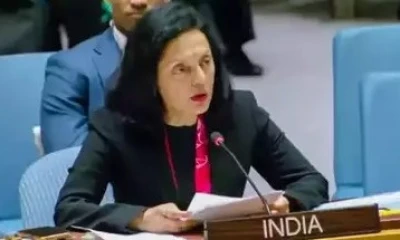Bharat’s Permanent Representative to the UN, Ruchira Kamboj, recently highlighted the significant moves in women’s leadership within Bharat’s Panchayati Raj system during a UN discussion. Describing the Panchayati Raj as a symbol of decentralised power at the grassroots level, Kamboj emphasised its role in fostering inclusive decision-making processes.
“At Bharat’s CPD57 side event, ‘Localising the SDGs: Women in Local Governance in India Leads the Way,’ we discussed the transformative impact of women’s empowerment,” Kamboj remarked, highlighting the unique nature of the Panchayati Raj system.
She elaborated, “The Panchayati Raj is a sterling example of direct democracy that facilitates active participation from all residents of a Panchayat through the Gram Sabha.” This structure, decentralised and participatory, distinguishes it from conventional municipal governance models, making it a model for inclusive governance.
Kamboj celebrated Bharat’s commitment to gender equality, citing the landmark constitutional amendment in 1992 that mandated the reservation of at least one-third of all elected roles in local governance for women. She noted with pride, “Today, of the over 3.1 million elected representatives, more than 1.4 million are women,” highlighting the substantial increase in women’s representation in 21 States.
Discussing the integration of sustainable development goals (SDGs) into local planning, Kamboj explained, “The impact of such initiatives has been transformative.” By prioritising women’s empowerment, the Panchayati Raj system ensures women’s needs are addressed, leading to more inclusive and sustainable outcomes.
Kamboj commended women leaders for their efforts in breaking traditional barriers and driving positive change in communities. She emphasised their role in enhancing education, healthcare, sanitation, and livelihoods, leveraging their unique perspectives and experiences.
Recognising the challenges faced by women in leadership, Kamboj stressed the importance of supportive legal frameworks, capacity building initiatives, and collaborative partnerships. She concluded, “As we move forward, let us renew our dedication to fostering women’s leadership in local governance,” invoking Mahatma Gandhi’s words to underline the strength of women in achieving gender equality and sustainable development goals.

















